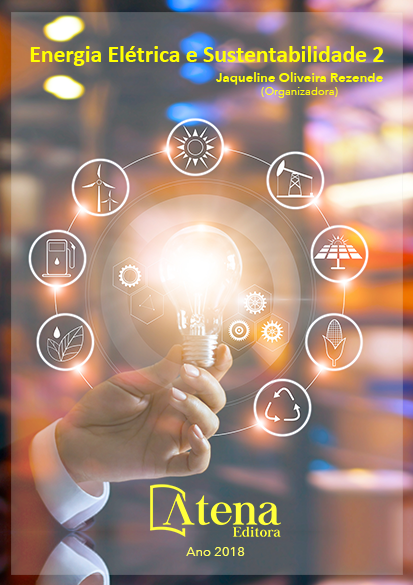
A EXPERIÊNCIA DA ELETRONORTE NA IMPLANTAÇÃO DA ANÁLISE DE RESPOSTA EM FREQUÊNCIA PARA DIAGNÓSTICO DE REATORES E TRANSFORMADORES DE POTÊNCIA
RESUMO: A energia elétrica provém do sistema
elétrico, onde transformadores e reatores são
utilizados para interligar os sistemas da geração
à distribuição, fazendo a alteração e o controle
dos níveis de tensão, respectivamente.
Estes equipamentos representam uma parte
significativa dos investimentos. E falhas
nestes resultam em elevados índices de
indisponibilidade, uma vez que: nem sempre se
dispõe de unidade reserva; o custo de aquisição
é elevado; os equipamentos são produzidos
especificamente para uma determinada
instalação, não sendo fabricados em série;
os prazos envolvidos no reparo, fabricação e
transporte são ordem de meses.
Dessa forma o acompanhamento e a monitoração
de suas condições, desde a fabricação até a
retirada de operação, são essenciais para que
se reduzam os custos associados ao seu ciclo
de vida, e possa garantir sua confiabilidade e
durabilidade.
Um levantamento elaborado entre 2000 e
2008 para companhias seguradoras do setor
elétrico brasileiro, aponta que de quase cem
transformadores avaliados as falhas foram:
69,9% por defeito nas bobinas, 16,3% em
comutador e 10,9% em bucha. Considerando
apenas os transformadores de transmissão:
27% falharam por curto-circuito externo, 18%
por defeito de fabricação, 18% por falha em
bucha, 14% por falha em comutador, 9% por
defeito após reparo.
Baseados nisto a Eletronorte aplicou a
Análise de Resposta em Frequência (FRA),
na avaliação de 44 equipamentos de 500 e
230 kV, para detectar os defeitos que podem
ser diagnosticados através deste ensaio,
como: deformação da bobina, falha no núcleo
magnético, faltas do núcleo para a terra,
conexões internas quebradas ou abertas,
colapso parcial do enrolamento, espiras curto
circuitadas e abertura do enrolamento.
A EXPERIÊNCIA DA ELETRONORTE NA IMPLANTAÇÃO DA ANÁLISE DE RESPOSTA EM FREQUÊNCIA PARA DIAGNÓSTICO DE REATORES E TRANSFORMADORES DE POTÊNCIA
-
DOI: atena
-
Palavras-chave: Diagnóstico, Transformadores, Reatores, Análise de Resposta em Frequência.
-
Keywords: Diagnostic, Transformers, Reactors, Frequency Response Analysis.
-
Abstract:
The electric power comes from
the electrical system, where transformers and
reactors are used to interconnect the generation
systems to the distribution, making the change
and control of the voltage levels, respectively.
These equipment represent a significant part
of the investments. And failures in these results
in high indices of unavailability, since: there is
always a reserve unit; the cost of acquisition is
high; the equipment is produced specifically for
a particular installation and is not manufactured
in series; the deadlines involved in the repair,
Energia Elétrica e Sustentabilidade 2 Capítulo 9 97
manufacturing and transportation are order of months.
In this way, the monitoring and monitoring of its conditions, from the manufacturing to
the withdrawal of operation, are essential to reduce the costs associated with its life
cycle, and to guarantee its reliability and durability. A survey carried out between 2000 and 2008 for insurance companies in the Brazilian
electric sector, indicates that of almost 100 transformers evaluated the failures were:
69.9% by default in the coils, 16.3% in the commutator and 10.9% in the bushing.
Considering only the transmission transformers: 27% failed by external short circuit,
18% by manufacturing defect, 18% by bushing failure, 14% by switch failure, 9% by
defect after repair. Based on this, Eletronorte applied the Frequency Response Analysis (FRA), in the
evaluation of 44 500 and 230 kV equipment, to detect the defects that can be diagnosed
through this test, such as: deformation of the coil, failure of the magnetic core, faults
from the core to the ground, broken or open internal connections, partial winding
collapse, short circuit turns and winding opening.
-
Número de páginas: 15
- Vanessa de Cássia Viana Martins Beltrão


